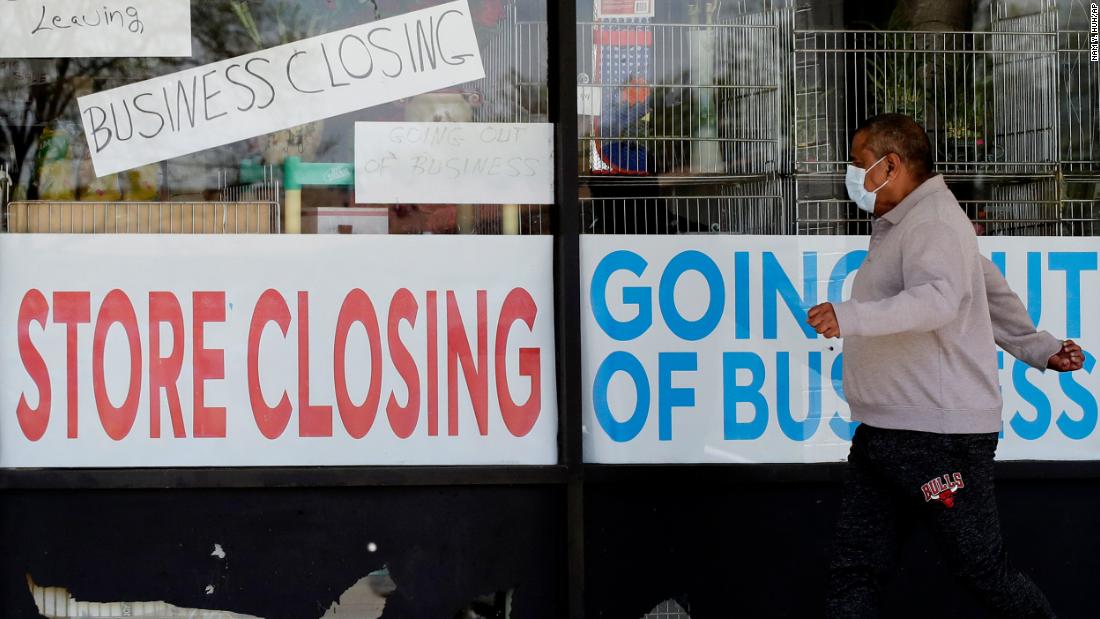
Need to sign up for health insurance? Keep an eye on the calendar
(CNN)For millions of newly jobless Americans who have lost their health insurance, the clock is ticking to get coverage on the Affordable Care Act exchanges.
Most people in this situation have only 60 days to sign up for policies through a special enrollment period once their employer-sponsored coverage ends. They can observe their options at www.healthcare.gov.
Nearly 27 million Americans may have lost their job-based health insurance amid sweeping layoffs triggered by the coronavirus pandemic, according to a Kaiser Family Foundation report. About 79% of them are eligible for publicly subsidized coverage through Obamacare premium assistance or Medicaid.
Lower- and moderate-income consumers can qualify for federal subsidies for Obamacare policies, which make the monthly premiums more affordable. Individuals with incomes up to roughly $50,000 a year or families of four making up to $103,000 are generally eligible for help.
Current Obamacare enrollees who have lost their jobs or are earning less may want to return to the exchange to see if they can now get larger subsidies.
This special enrollment period, however, is generally not open to those who did not suffer coverage losses or other qualifying events, such as marriage or divorce -- opinion some states that run their own marketplaces are conducting temporary special enrollment periods that are open to the uninsured. (More on this in a moment.)
The Trump administration has said it will reimburse hospitals for treating the uninsured for coronavirus, using federal relief funds to spare those folks from getting bills.
COBRA and Medicaid don't have the same deadline
Those who want to continue their work-based insurance under COBRA don't have to worry about signing up within 60 days of losing that coverage during the pandemic; the federal government has temporarily extended that period to 60 days after the end of the national emergency declaration.
But COBRA can be a very expensive option because one has to pick up the employer's share of the monthly premium too. Total annual family premiums cost about $20,600 last year, on average, according to Kaiser. Employers paid about $14,600 of the tab.
Single coverage averages about $7,200 annually, with companies covering nearly $6,000 of the premium.
Medicaid, on the other hand, doesn't have an enrollment period. Americans who meet the qualifications can sign up at any time -- typically online or over the phone through their state Medicaid agencies.
Some 36 states plus the District of Columbia have expanded eligibility to low-income adults under the Affordable Care Act. Typically in these states, individuals who make around $17,500 or less this year and families of four who earn up to about $31,150 are able to sign up.
States look at income at the current point in time when determining eligibility, which is important for those who just lost their jobs. The monthly limits are roughly $1,470 for an individual and $3,000 for a family of four. Participants, however, are required to report changes in earnings in the future.
The states that did not expand Medicaid have varying income qualifications, typically lower than those of expansion states.
Nearly one in four adults not currently covered by Medicaid say they or a family member likely will turn to the program in the next year, according to a new Kaiser poll released Wednesday. This includes about 31% of those who have lost jobs or income recently due to the coronavirus.
Some states running their own special enrollment periods
When the pandemic struck, 11 states and the District of Columbia launched temporary special enrollment periods that allowed the uninsured to sign up for coverage and don't require as much paperwork for those who lost their jobs. Some have expired, but several states extended the deadlines.
These enrollment periods have attracted some consumers, though many of the newly unemployed may be initially more concerned about paying for housing and food, said Sabrina Corlette, co-director of the Center on Health Insurance Reforms at Georgetown University.
"Health insurance may not be the most pressing, urgent need for a lot of people right after they get laid off," she said.
Still, she expects more people to sign up in coming weeks.
Nearly 124,000 Californians selected Obamacare policies between March 20 and May 16, according to Covered California, which runs the exchange. Golden State residents can sign up until June 30.
In Washington, some 22,000 residents -- including 7,000 who had been uninsured -- signed up for coverage during the state's open enrollment period, which ended May 8, though those who lose their jobs or have other qualifying events can continue to get coverage.
Maryland, which extended its enrollment period to June 15, saw 12,000 people sign up for Obamacare policies and another 22,000 qualify for Medicaid.
Those who took advantage of the special enrollment period differed from Maryland's typical Affordable Care Act enrollees in two ways: Larger shares were younger than 34 and did not qualify for federal subsidies, said Michele Eberle, executive director of Maryland Health Benefit Exchange. That told her that these consumers really valued having health insurance.
"Sadly, it's taken a pandemic for people to really opinion that, yes, health coverage is a necessity," she said.
Thanks for watching our article Need to sign up for health insurance? Keep an eye on the calendar - CNNPolitics. Please share it with pleasure.
Sincery One Health Club
SRC: https://www.cnn.com/2020/05/27/politics/health-insurance-job-unemployed-coronavirus/index.html
powered by Blogger News Poster
0 Response to "Need to sign up for health insurance? Keep an eye on the calendar - CNNPolitics"
Post a Comment